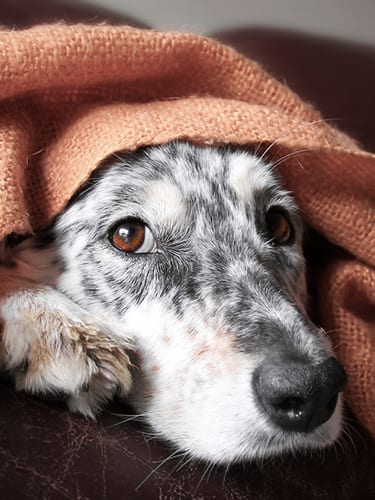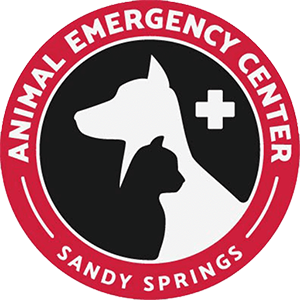Pet Surgical Services
We have a state-of-the-art surgical suite here at Animal Emergency Center of Sandy Springs, allowing us to perform a wide variety of veterinary surgeries onsite.

Some common animal surgeries we perform for cats and dogs include:
- Trauma/wound repair
- C-section
- Bloat
- Cystotomy
- Perineal Urethrostomy (PU)
- Splenectomy
- Pyometra
- Foreign body removal
How Can I Help My Cat or Dog Recover Post-Op?
The best thing you can do to help your pet recover after emergency animal surgery is to follow your veterinarian’s post-op instructions. They will provide you with detailed instructions on post-op diet, medications, any exercise restrictions, pain management, and more.
Some other things you can do to help your pet recover from surgery:
- Create a safe, comfortable space for your cat or dog, preferably away from other pets and the more hectic parts of your home.
- Monitor the incision site and use an Elizabethan collar (if applicable) to ensure they’re not licking or scratching it—notify your veterinarian immediately if you spot any signs of infection.
- Follow your pet’s post-op diet instructions and notify your veterinarian immediately if your pet has not regained their appetite 48-hours after surgery (this could indicate pain or infection).
- Follow your pet’s post-op medication instructions and notify your veterinarian if you’re having trouble administering them. Post-op antibiotics and pain meds are vital to your pet’s recovery.
- Keep any bandages clean and dry.
- Don’t skip out on your pet’s post-op veterinary appointment(s).
- Restrict movement and exercise for as long as your veterinarian recommends.

Most animal surgeries won’t require crate confinement, but if your veterinarian recommends it we will provide you with tips and tricks to make it easier on your pet and you.
If you believe your pet is having an emergency, please contact us at (404) 252-7881. If you have additional questions about our hospital’s policies, please visit our FAQs page.
